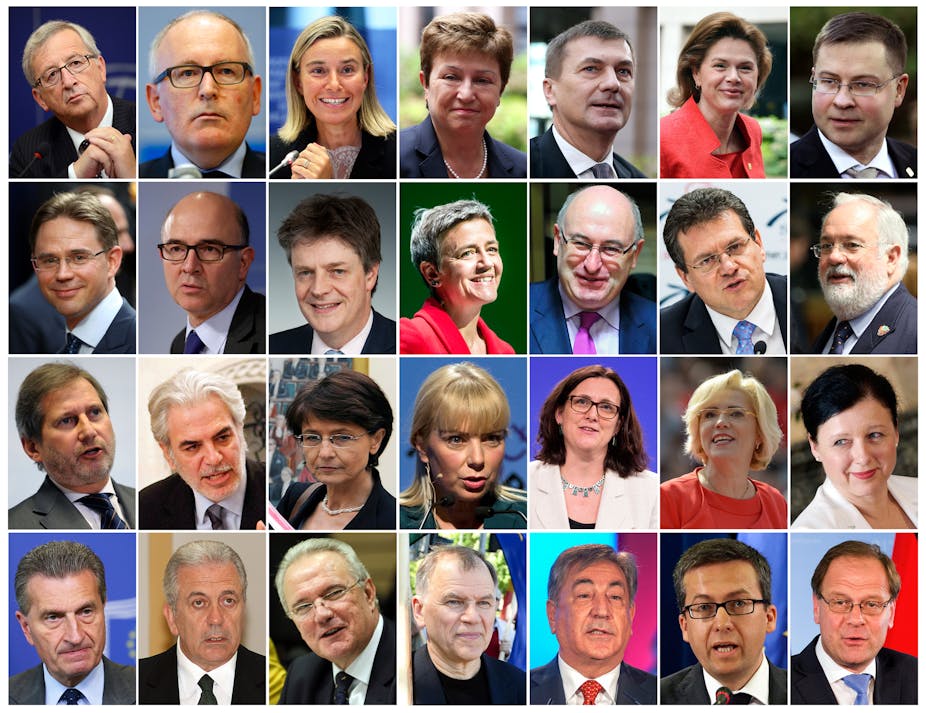Jean-Claude Juncker, the newly elected president of the European Commission, announced his nominated team of commissioners this week. Each represents one of the 28 members states and will take charge of a themed portfolio next year. They range from environment to transport to the internal market and were allocated after fierce lobbying.
Juncker has put a number of prominent nominees in charge of policy areas that are reported to be problem areas for their respective national governments. This may well offer us some insight into the kind of commission he wants to lead.

Giving the UK’s Jonathan Hill the financial services portfolio is one example. Handing France’s Pierre Moscovici the economic and monetary affairs brief is another. It has even been suggested that Juncker is handing these two a mission to fix certain European problems by getting them to working intensely within their own countries.
This move reflects the role of commissioners as crucial mediators between Brussels and national governments. This is a job they’ve done since the very birth of the commission in 1958. Commissioners have repeatedly decoded, and often de-dramatised the EU within their own states, as well as transmitted important information and insights in the opposite direction.
But we also know that becoming a successful mediator means that commissioners will need to abandon any idea of being a self-interested national delegate in Brussels and, most importantly, they must not work solely on their own portfolio.
If Leon Brittan, UK commissioner from 1989 to 1995, won the respect of politicians throughout Europe, it was because he fought long and hard to represent the EU within a member state known for its knee-jerk euroscepticism. He continued to circulate in national government circles after joining the commission and often spoke about Europe in the British press. In the process, Brittan crucially went way beyond his portfolios of competition and trade by seeking to position himself as a European politician capable of covering the whole waterfront of issues dealt with at EU level.
The history of other commissioners, such as Ireland’s Ray MacSharry, shows what happens at the other end of the scale. Stick to your portfolio too rigidly and you risk becoming little more than a senior technocrat with no public profile.
How Juncker’s team works out will depend on how each player manoeuvres. They could interpret their role in different ways. They might become a policy specialist or a political generalist on the one hand, and a technocrat, a diplomat or a politician on the other. Each nominee will be grilled by the European Parliament in the coming weeks and these auditions will provide some initial clues as to how they plan to operate. But we will know much more once they actually take up their posts in 2015.
In the meantime, Juncker himself may already be sending out signals about how he expects them to operate. In seemingly mandating many of his commissioners to work on issues that are particularly thorny in their countries of origin, he seems to have implicitly sent them a message that they should see themselves as politicians charged with representing the EU politically, at least in their own countries.
The question remains, however, about whether Juncker and his closest allies envisage this task of representation being conducted publicly and transparently or behind the closed doors of national governments. Are they spokespeople or fixers? This question goes to the heart of whether the EU has become a genuine space for politics and whether national and even European actors are willing for this development to actually come about.

